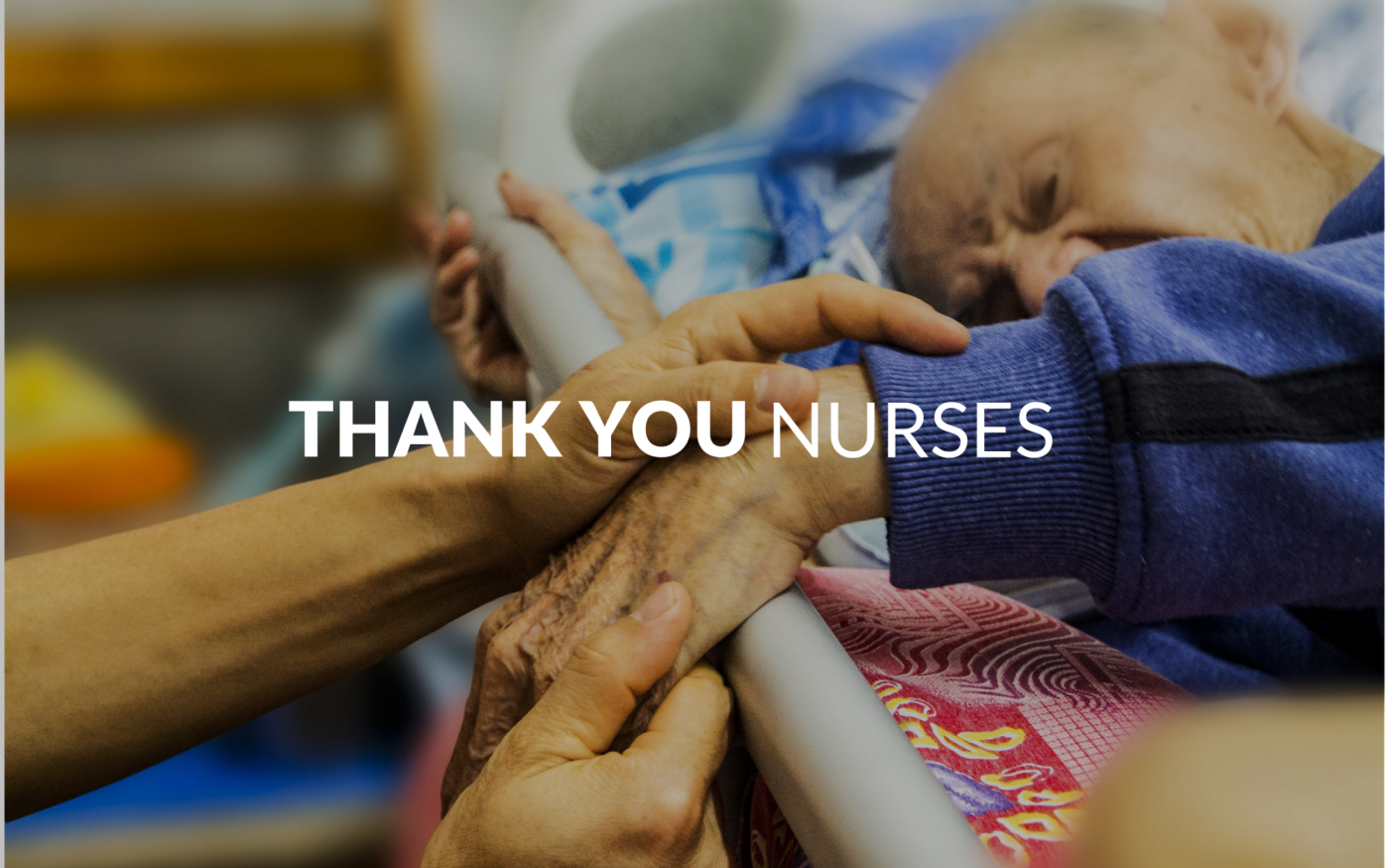
I received the phone call on November 18, 2020, that my mother-in-law had tested positive for COVID. This was devasting news because we knew that at age 89, while in real life she was still a vibrant, active woman, on paper she had all the underlying conditions to cause great concern about her diagnosis.
By 10pm that evening, she was in the ER, and 10 days later she died. During those 10 days, she was cared for and ministered to deeply by the nurses who, in our absence, “walked her home.”
Her nurses provided a high level of medical care for her … and so much more.
Nurses stood in the gap left by the restrictions placed on us by COVID that meant that we, as family, could not be by her side as she suffered through those 10 days.
Nurses did ALL the medical things, and then they comforted her, nurtured her, turned her, sat with her, and facilitated Zoom visits with us for her.
Three days before she died, our entire immediate family–about 20 of us–held a Zoom call with her that was, in essence, her celebration of life and our goodbyes. It was that tapestry of beauty and horror that one experiences at time like this:
- the beauty of being together as a family to help walk her home
- the beauty of gratitude shared to her for the place she held in our lives
- the beauty of her still “mothering” us
- reassuring us that she wasn’t afraid
- expressing her gratitude for the rich life she had lived
- admonishing the family to always “get along”
- all laced with her unique brand of humor that was still not lost even on her death bed.
And the horror that there we were, telling our loved one “goodbye” over Zoom. Unthinkable.
What I couldn’t get out of my mind was the nurse. The nurse who held the iPad. The nurse who, in addition to everything else, held not only the iPad, but the pain of our entire family as we said goodbye.
Later, I thought to myself, “And when that nurse is done with that in room 206, she’s going to go to room 207 and do it over again, then to room 208, and on and on.”
I knew the statistics at that time, the number of people dying alone each day of COVID in my city. At this very hospital.
So, I knew how often a nurse was holding an iPad: holding the grief, holding the pain, holding the helplessness. I don’t know what role of nursing you’re in…but may I begin by simply saying thank you.
You may have been a nurse holding an iPad over the past two years, or you may have been holding a little one’s hand, or caring for a cancer patient or someone recovering from surgery … swabbing noses, or triaging, working in a clinic … I don’t know.
I don’t pretend to know what you hold or the weariness you feel. I don’t pretend to know the grief you have endured, either through your own personal loss, through proximity to the grief of others, or maybe the grief of being in a career that, because of a pandemic, looks very different than you thought it would look.
I don’t pretend to know what it’s like to be you, but I do want you to know that I see you, and I am grateful for you.
Nancy Schornack is a Licensed Mental Health Counselor (LMHC) in Iowa with over 30 years of counseling experience. She works in private practice with her husband in Second Journey Counseling.
Nurses Christian Fellowship expresses our thanks to Nancy for her willingness to share her personal experience with each of us. Nancy shared this expression of gratitude as a part of our March 2022 Tabletop Discussion, “The Power of Relationship: Sharing Our Stories of Difficulty and Hope.” This webinar is available online to all NCF members.
Add new comment